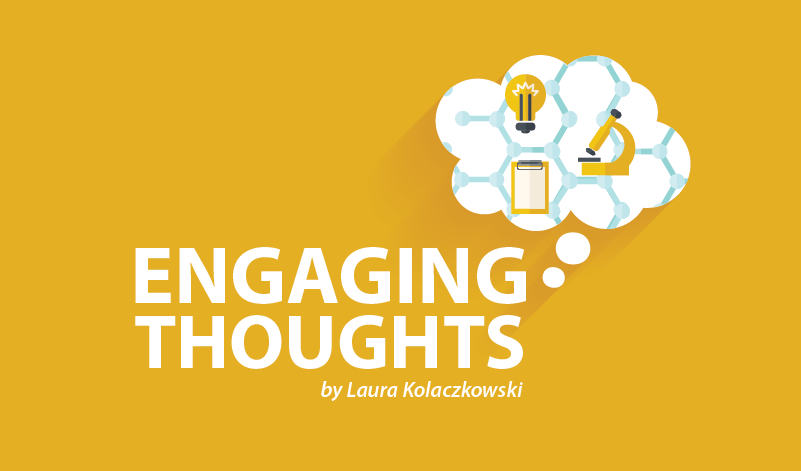MS PATHS: Be Aware of the Info You Share


Would you open your bank account and write a blank check to just anyone requesting something of value from you? Of course not. So, why would we do that with our healthcare information?
I was recently sent an informed consent form from the MS clinic where I am treated, requesting that I allow my clinical data to be used for the MS PATHS (MS Partners Advancing Technology and Health Solutions) study, sponsored by Biogen. I wrote about this upcoming study in 2015, and how there was a lack of details and transparency as to what information would be gathered, and who was going to benefit. You can read that background story, Dr. Google Will See You Now. Really.
When I wrote that story I never imagined I would be asked to consent my own information to this study. It seems the MS Clinic I go to is one of what is “expected to be 10” sites in the U.S. and Europe. This has posed quite a dilemma for me because I know my neurologist well, and there are plenty of good reasons he can offer as to why I should consent to have my healthcare data made available to the MS PATHS study. I understand the enormous value of big data, but as I read the informed consent form, I became more troubled than ever with this study and the lack of details, so I went looking for more information.
The official take on MS PATHS appears on the Biogen website, authored by Richard Rudick, MD, director of the Value-Based Medicine group.
“We are joining forces with 10 leading MS centers across the U.S. and Europe in an (sic) collaboration to collect comprehensive, quantitative medical information directly from thousands of patients and their providers. Using technology and enhanced patient engagement, we are standardizing and collecting comprehensive clinical and imaging data on every MS patient who agrees to share de-identified data. Because the information is collected at the patient visit, it will be immediately available for better, data-driven medical decisions; and the data will also be de-identified, transferred out of the individual MS centers, and then deposited into a secure database where it can be analyzed, studied, and applied toward advancing knowledge about MS and its treatment. With MS PATHS, our goal is to effectively merge patient care and research — a key component of a learning health system.”
It should be noted that learning health system studies are different than clinical trials and do not require the same type of oversight from regulatory agencies.
This all sounds great, except my paperwork says “this research will be to better understand MS disease progression, patient response to therapies and cost to healthcare systems. MS PATHS also aims to develop new methods or technologies to measure MS activity, including a computerized method of analyzing MRI scans, and develop a personalized approach to deciding on treatment.”
That language tells me there also is a lot of commercial value to what will come from MS PATHS data.
The consent goes on to say that my de-identified information will be shared with Biogen, and Biogen may then share it with any other person or organization it might choose. There is no mention by name of any of the other partners in this study, and it does not state exactly what information Biogen wants to gather. Instead, I am asked to open my healthcare record, in its entirety, to a pharmaceutical company that happens to already have the largest share of the MS drug market in the U.S.
The informed consent I have been provided wants me to agree to the following:
“I understand that Biogen and the companies working on Biogen’s behalf, may share my information with other researchers, institutions and collaborators for the research purposes described above. I understand that my health information may also be shared with Western Institutional Review Board, the US Food and Drug Administration (FDA), department of Health and Human Services (DHHS) agencies, and other government agencies, as required by applicable law…”
The form also says my health data from the 12 months prior to when I officially begin the study may be shared. I don’t even know what that might contain because I have not seen my neurologist’s notes and I certainly don’t remember the past year in detail. My health data, once shared with Biogen, also will be available to a large number or researchers, government organizations and other collaborators (whoever that might be).
A big sticking point for me is it doesn’t specify which parts of my record will be shared, so it must be assumed it would be my entire record. What happens when I share information that I think was confidential, and instead is now part of this bigger record?
For example:
- Let’s say I talked to my neurologist about using medical marijuana, which is not legal in my state, and that becomes part of a larger record than just between the two of us.
- Or, what if I was struggling with the use of the pain pills available to treat my MS and had experimented with other ways to relieve pain and confided this to my doctor, and it became part of my larger record?
- How about conversations about stress, a big factor in controlling MS symptoms, that might have come from my family or other factors? Would I want this information to be seen by government agencies?
- What if I am being treated for depression and prefer that information NOT become common knowledge because it could affect my employment status. (Some professions immediately disqualify you from working in that field if you are being treated for depression.)
The list of “what-ifs” could be extensive — those things we think we are sharing in private with our doctor, but would be part of this permanent record that could be shared in unlimited places.
I understand the value of this type of big data to improve the lives of people with MS, and MS PATHS is very similar to what we are doing with iConquerMS, the patient powered research network. We also have an informed consent form and when you read it you will see exactly what information we are collecting and how it will be shared. The same goes for NARCOMS, a long-running registry of patient health data submitted via semi-annual surveys, that also is fairly open about its gathering of data and who will be using it.
iConquerMS wants the data gathered via surveys, electronic health records that the person wants to share, and also their MRI information, but only if they choose. Participants know exactly what information is being shared because they are the ones who decide what information is passed on. This is not the case with MS PATHS, where Biogen will have access to everything in my recent MS health record.
So, here is my bottom line: I am all for sharing information, but I also believe I should know what is being shared. Even more important, I want to know who is getting my information and what will they do with it.
Until I know those answers, I have to reply that I am not willing to give a blank check to MS PATHS and Biogen for access to anything and everything they want.
Note: Multiple Sclerosis News Today is strictly a news and information website about the disease. It does not provide medical advice, diagnosis, or treatment. This content is not intended to be a substitute for professional medical advice, diagnosis, or treatment. Always seek the advice of your physician or other qualified health provider with any questions you may have regarding a medical condition. Never disregard professional medical advice or delay in seeking it because of something you have read on this website. The opinions expressed in this column are not those of Multiple Sclerosis News Today, or its parent company, Bionews Services, and are intended to spark discussion about issues pertaining to multiple sclerosis.







Judy Lynn
Interesting...because I am so pro-research, I probably don't read carefully enough sometimes. This is a good reminder to very careful consider the merits of each research project I am asked to contribute to.
Ed Tobias
Very, very useful Laura. We should all be cautious and understand that not all requests for our info are alike. Read, question and then decide.
Ed